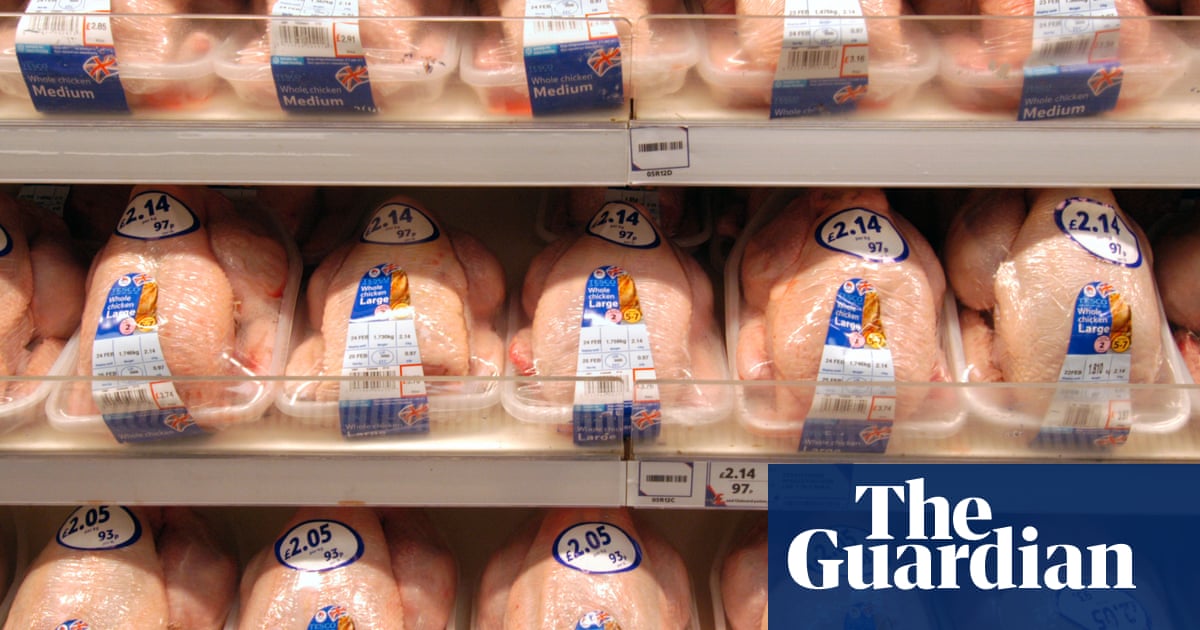Chlorine-washed chicken and hormone-fed beef may not be essential for a US-UK trade deal, Donald Trump’s agriculture secretary has signalled.
Speaking to journalists at a press conference in London, Brooke Rollins indicated that the market was moving away from the two controversial methods of production, which are illegal in the UK and the EU.
Rollins is visiting to discuss the specifics of the trade deal the US president, Donald Trump,announced last week, which took in agricultural products including ethanol and beef. On Tuesday, she met the UK’s environment secretary, Steve Reed, who reiterated that the government will never accept chlorine chicken or hormone beef.
Asked whether the US would insist on the UK accepting chlorine-washed chicken as a condition of any future tariff reductions, she said “only about 5% of our chicken in America is actually treated that way, with the chlorine,” adding “we have moved, over the last decade, completely away from the chlorine chicken.”
In the US, farmers are allowed to use chlorine washes and other disinfectants to remove harmful bacteria that may have infected chickens during rearing and slaughter. The EU banned the practice in 1997, leading to a long-running dispute over imports of chicken from the US. There are concerns that chlorine may compensate or mask poorer hygiene and animal welfare standards earlier in the food chain.
Rollins also suggested some US beef producers were moving away from using hormones. When asked if they were, she said: “Our cattle producers, obviously, are constantly watching what the markets look like, and if the markets are calling for a specific type, or they have more opportunity somewhere, then I think that we potentially do see some movement in the market.”
Trump suggested last week that US agriculture could end up being produced to higher health and environmental standards under the leadership of his health chief, Robert F Kennedy Jr, adding: “Bobby Kennedy is probably heading towards your system.”
Rollins told reporters on Tuesday: “That the more our two countries and those who are aligned with our values are regulatory aligned, meaning that we don’t have all these different systems and structures, I think that that is going to go a tremendously long way to supporting the agriculture industry in both the US and the UK.”
The next agricultural imports on the table for future discussions include seafood and rice, Rollins added: “The UK, for example, really relies on China and Russia for your seafood. America has extraordinary best-in-class seafood. Let’s talk about that.”
Sign up toBusiness Today
Get set for the working day – we'll point you to all the business news and analysis you need every morning
after newsletter promotion
Previous free trade agreement attempts between the US and the UK have been stalled by a lack of willingness from the UK to accept agricultural productsproduced to lower standards.
White House adviser Peter Navarro last week called sanitary standards a “phoney tool used to suppress what is very fine American agricultural product” and said the market should decide, adding: “We don’t believe that once [British people] taste American beef and chicken that they would prefer not to have it.”
Last week’s deal included access for British beef farmers to the US market, joining a small group of countries including Australia, while US farmers will be granted new access to the UK for beef and ethanol. British farmers have warned the new tariff reductions for bioethanol couldcollapse the UK industry.
